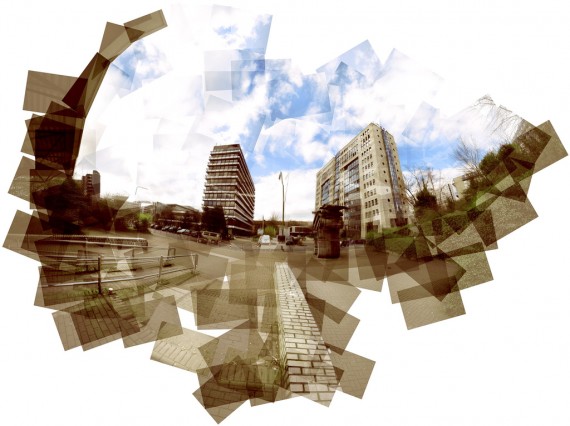
 This is a guest post by R. York Moore. He works for InterVarsity on a national level, and has been training Christians in personal evangelism through his seminar,“Tell the Story!”for over 10 years and has been an evangelistic speaker for over 15 years. After coming to Christ as an Atheist at the University of Michigan where he honored in philosophy, R. York Moore has led thousands of college students to Christ throughout the U.S., Canada, and the Caribbean.
This is a guest post by R. York Moore. He works for InterVarsity on a national level, and has been training Christians in personal evangelism through his seminar,“Tell the Story!”for over 10 years and has been an evangelistic speaker for over 15 years. After coming to Christ as an Atheist at the University of Michigan where he honored in philosophy, R. York Moore has led thousands of college students to Christ throughout the U.S., Canada, and the Caribbean.
As an abolitionist, over the past ten years I’ve brought together leaders in business, academia, medicine, entertainment, law, government, with non-profit leaders to engage the growing problem of human trafficking. Through large city-sized campaigns to small events on liberal arts colleges I have been surprised to see how easy it is to build coalitions around the ‘common good.’
Challenges to justice are the single greatest unifying force between Kingdom-minded Christians and this emerging generation of globally conscious non-Christians. This unifying force provides a firm foundation to build not only movements but importantly the kinds of working relationships that can lead to real transformation.
The challenge often comes with the lack of theological understanding and vision on the part of Christians, both of which are needed to help us move from a place of mere activism to what I call ‘world building.’
World Building
World building is the differentiating characteristic between humans and the rest of God’s creatures-we are like God as we engage in world building. World building is what is behind our vision to engage injustices and to help people who are in a place of suffering and want. World building is often masked by other, more readily understood, motives like the longing for influence, power, fame, control-but in the end, what is behind most human efforts to change the world is the capacity and drive toward world building. This drive comes from being made in God’s image.
In his second inaugural address, President Barack Obama paints a picture of the preferred future where American’s, together, march into a future of prosperity, protecting the dignity and value of all peoples and the environment while advancing the interests and political philosophy of our democratic union throughout the world. His 18 minute speech, beyond political posturing, reflects the deep ideology of a world leader who is active in world building. The resonance this world-building president has with an emerging American generation is evident and the willingness to pursue his vision for the preferred future is contagious.
For Christians interested in transformation, much of this preferred future strikes a chord as well. Our common concern for the marginalized, access to opportunity for the poor, and care for the creation are just a few things we share as world-building aspriations. The contours of world-building in American secularism have never been closer to the Kingdom-vision of the church, making real partnership in pursuit of the common good the primary road toward individual and social transformation.
Ray Bakke says,
“God lives in community and works in partnerships.” [i]
If this is true then missiology is our mother theology for within its framework we see the ultimate expression of a communal God engaging in world building for His good pleasure and for the flourishing of the world. This, then, is at the heart of all Christian understanding of God, making missiology much more than sets of principles, or methodological practices. Missiology is fundamentally about world building.
God Lives In Community
What I’ve discovered over the years is that God does, indeed, live in community and works radically in partnership but these relationships and partnerships are not restricted to the Church. In fact, if I’m honest, as I’ve engaged in visionary world making ventures with the non-Churched, such relationships and partnerships have brought about more true transformation than most I’ve engaged in within Church walls. This is where our theology needs to be challenged and broadened. In challenging his readers about societal engagement and the role of faith, Paul asks a fundamental question in Romans 3:29, “…is God the God of Jews only? Is he not the God of Gentiles too?” Pauls quick and revealing answer is, “Yes, of Gentiles too…” God is the God of all peoples and as such is active in their lives and communities, revealing Himself and his desires for a preferred future for all.
Because of this, sharing in world building is incredibly important both for the Christian and non-Christian alike. Without the spiritual presence of the Spirit of God needed in community and partnership, non-Christian world-building endeavors will always be at best a counterfeit and benign expression of God’s plans for all peoples but at worst a destructive perversion of them.
As we’ve seen time and time again, without the spiritual revelation of God and the redemptive presence of the Church, diversity devolves into debauchery, environmental activism devolves into elevating the creation over and against the creator, and caring for the poor devolves into a just another exploitative venture against a new set of people groups. The world needs partnership and relationship with God’s people.
I would also argue, however, that the Church needs non-Christians as well and not merely to get things done! If God is the God of all peoples then it stands to reason that He is at work already, shaping and molding communities and planting the aspirations for world building in their hearts as well. Sit across a table from community activists for any length of time and you will find glimpses of the heart of God on behalf of those who suffer. Spend time with many in the medical and governmental realm and you will find a duty-bound, resilient community bent on bringing good to humanity.
While I would not go so far to say that there is ‘good in all people,’ I would say that the residual image-bearing goodness of God cannot be contained and is breaking forth in all peoples all the time. Missiology, then, is about joining in world building with our partnering God in working relationships with others where His goodness can break into our personal world and also transform the worlds of those around us.
[i] Bakke, Raymond J. 1997. A theology as big as the city. Downers Grove, Ill.: InterVarsity Press.


Amazing post:) Thanks York for laying this out so well. I’m passing this on to the other pastors in my church. We are currently in the middle of our strategic planning process and we are starting to re-think our “service” value and focus more on “community engagement”. I think there are really good words here for us to consider.
Thanks Prodigal. Community engagement, particularly at the organization to organization level, I believe is really where this kind of world-building can happen. It is very powerful for suburban churches whose ecosystem of networks are by nature distributed. God bless your planning process.